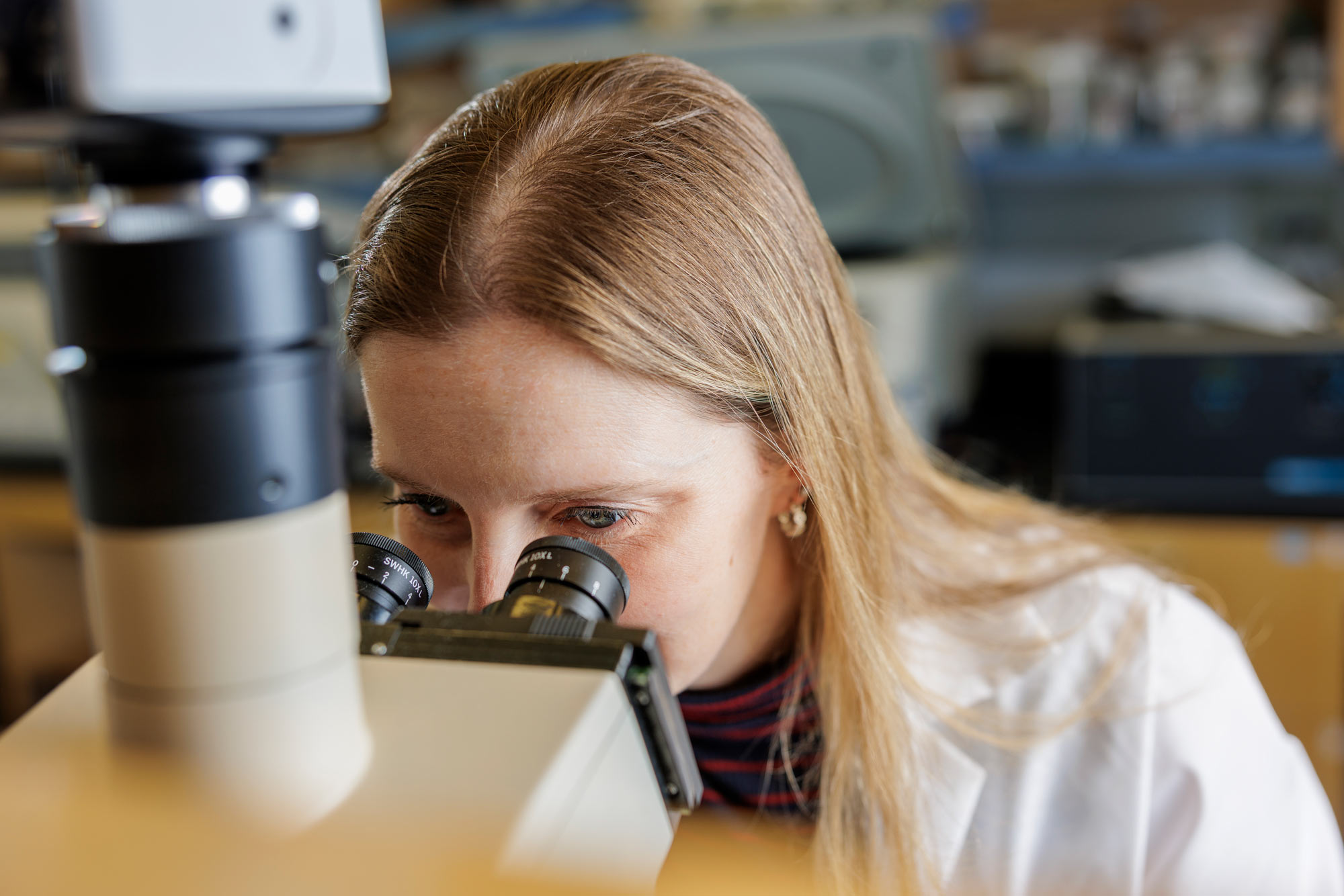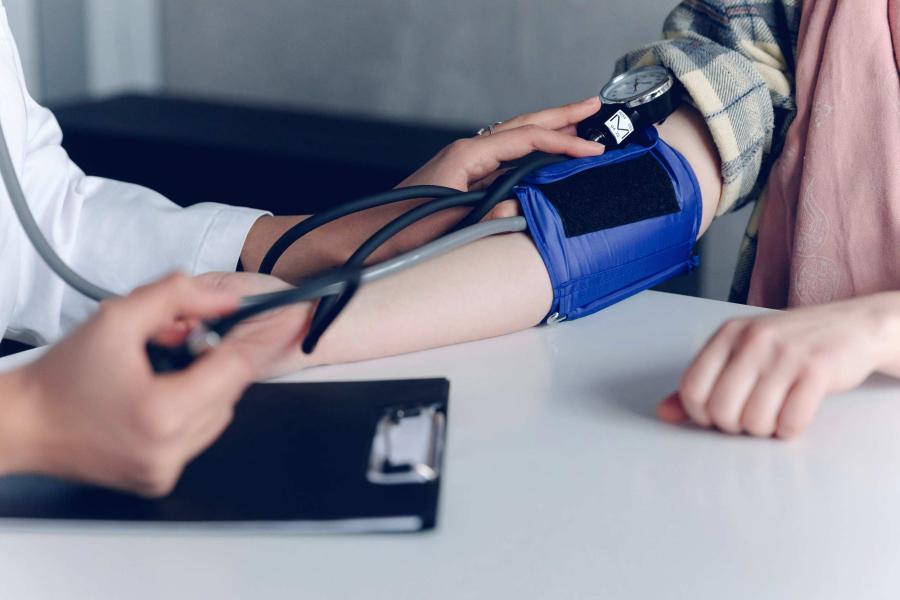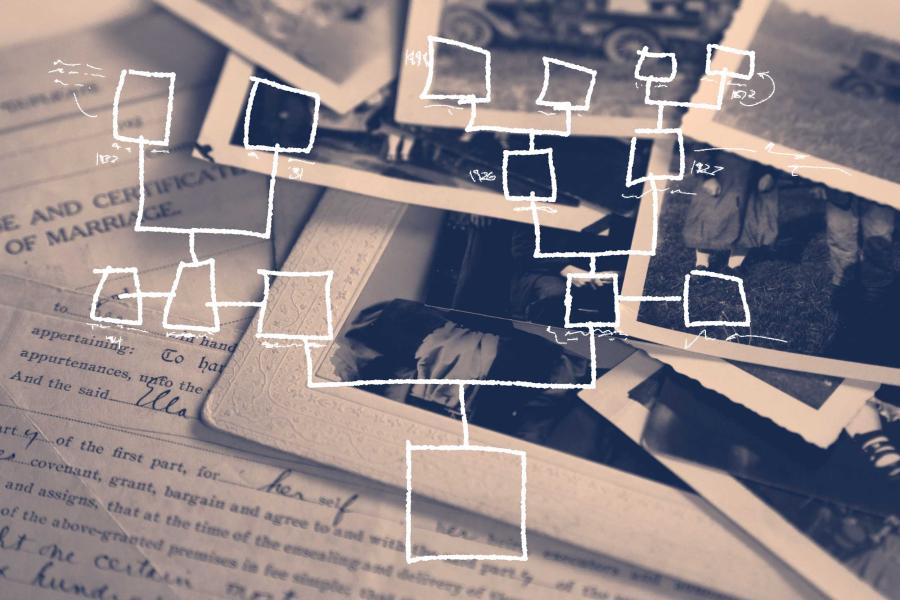At the University of Virginia School of Medicine, Kristin Anderson’s passion for cancer research stems from her own experiences with the disease and witnessing firsthand the power of scientific discovery to save lives.
While in the fourth year of pursuing her doctorate in immunology at the University of Minnesota, Anderson was diagnosed with an aggressive form of breast cancer. Just 28 years old, the diagnosis came as a complete shock to her, her family, her doctors and her friends.
“I remember waking up from surgery and the doctor saying, ‘The drug combination we gave you before surgery worked so well that we couldn't find any tumor left,’ and I’ve been disease-free, which has been really just such a monumental feeling,” she said. “I want other cancer patients to have that feeling, too.”

When she’s not in the lab or mentoring students, Anderson lectures on immunology and cancer research in several UVA classes. (Photo by Lathan Goumas, University Communications)
Now an assistant professor in UVA’s Department of Microbiology, Immunology and Cancer Biology, she leads a team of researchers focused on designing new treatments for patients whose tumors aren’t responding to the current therapies, or that were responding until the tumors changed. In terms of what that looks like every day, Anderson said, “No two days are the same.”
“That’s one of the reasons that I love this job so much,” she said. “It also allows me, along with the folks in the lab, to constantly be learning, and that’s one of the things that brings me so much joy.”
Anderson lectures in several different courses, including cancer research and advanced immunology courses. She also works with several undergraduate and graduate students who contribute to the lab’s research.
Her lab includes four doctoral students: Rossymar Rivera Colón, Yaning Li, Rylee Poole and Julia Blaszczyk. There are also several fourth-year undergraduate researchers, including Daniel Dapaah, Caroline Grant and Lizzie Mangilit, with a new crop of third- and fourth-year students being trained to start researching soon.










